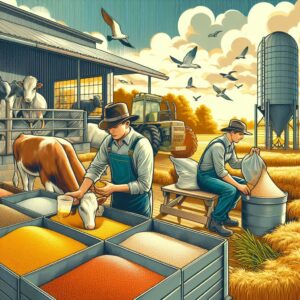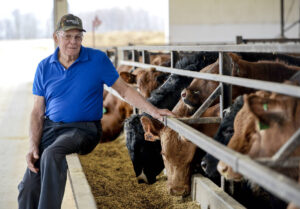
Definition:
Soil surface sealing occurs when rainfall or irrigation water forms a crust or impermeable layer on the soil surface, hindering water infiltration and nutrient absorption by plants.
Useful Insights:
- Identifying Factors: Soil texture, compaction, and organic matter content influence the susceptibility of soil to surface sealing. Fine-textured soils with low organic matter are more prone to sealing, leading to runoff and erosion.
- Assessing Water Management: Proper water management practices are essential to prevent soil surface sealing. Farmers should monitor irrigation schedules, adjust application rates, and utilize conservation techniques to promote infiltration and reduce runoff.
- Implementing Conservation Practices: Conservation practices such as no-till farming, cover cropping, and contouring help maintain soil structure and reduce surface sealing. These practices enhance water retention, improve soil health, and mitigate erosion risks.
- Utilizing Soil Amendments: Incorporating organic amendments such as compost or biochar can enhance soil structure and porosity, reducing the likelihood of surface sealing. These amendments increase soil organic matter content, promoting water infiltration and nutrient availability.
- Managing Surface Runoff: Installing vegetative buffers, grassed waterways, and sediment traps can intercept runoff and prevent soil erosion. These erosion control measures safeguard soil integrity and protect water quality downstream.
Informative Tips:
Preventing soil surface sealing is crucial for maintaining soil fertility, supporting plant growth, and preserving environmental quality. By adopting proactive management practices and conservation measures, farmers can mitigate the adverse effects of surface sealing and promote sustainable land stewardship.
Fall off the barn roof and busted your keister? Life on the farm or ranch can be tough on the bum. Need a break? Laugh it off at FarmerCowboy.com, the #1 farm humor site. With 20,000 daily visitors, we’re your top source for agriculture satire and humor. Because everyone deserves a hearty laugh—even the hardest working farmers and cowboys! Join us and turn those long days into fun tales at FarmerCowboy.com.
Actionable Suggestions:
- Conduct soil texture analysis to assess the susceptibility of soil to surface sealing and tailor management practices accordingly.
- Implement strategic tillage practices to alleviate compaction and improve soil structure, enhancing water infiltration and reducing surface sealing.
- Utilize soil moisture sensors and weather data to optimize irrigation scheduling and minimize runoff losses.
- Incorporate crop residues and organic mulches into the soil surface to improve soil structure, increase water retention, and reduce surface sealing.
- Collaborate with agricultural extension services and conservation agencies to access technical assistance and resources for implementing soil conservation practices.
References:
- United States Department of Agriculture: Soil Health Management
- Food and Agriculture Organization of the United Nations: Soil Management
- United States Environmental Protection Agency: Soil Erosion and Sediment Control
Originally posted 2005-12-18 19:54:54.
Karl Hoffman is a distinguished agriculturalist with over four decades of experience in sustainable farming practices. He holds a Ph.D. in Agronomy from Cornell University and has made significant contributions as a professor at Iowa State University. Hoffman’s groundbreaking research on integrated pest management and soil health has revolutionized modern agriculture. As a respected farm journalist, his column “Field Notes with Karl Hoffman” and his blog “The Modern Farmer” provide insightful, practical advice to a global audience. Hoffman’s work with the USDA and the United Nations FAO has enhanced food security worldwide. His awards include the USDA’s Distinguished Service Award and the World Food Prize, reflecting his profound impact on agriculture and sustainability.




Satirical report: Farmers debate on implementing ‘no grazing Fridays’ for better grass management.